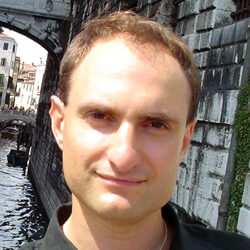Alexander Katz
Chemist Faculty Engineer
Research Interests
The Katz group applies emerging principles of supramolecular chemistry on solid surfaces towards the synthesis of functional advanced materials, involving catalysis and adsorption. We lead in the synthesis of organic-inorganic active sites, which are at the state-of-the-art in structural control. Our modular and generalizable engineering approach aims to roughly mimic principles of active site connectivity found in biological catalysts.
This approach leads to the highly refined design of heterogeneous catalysts, which function with an activity and selectivity that cannot be achieved using conventional approaches.
The group has most recently invented approaches for (i) mild zeolite precursor delamination, preseving framework cystallinity for applications benefiting from crystalline supports, (ii) the hydrolysis of glycosidic bonds under the mildest (i.e. close to pH 7) pH conditions that have ever been achieved, and (iii) design and synthesis of robust metal clusters that consist of an unprecedented amount of catalytic surface. Area (i) impacts catalytic applications where zeolitic supports are beneficial over traditional amorhous ones (see Grosso-Giordano et al. JACS 2018, 140, 4956—4960). Area (ii) broadly impacts the depolymerization and pretreatment of biomass to biofuels using less harsh chemicals. Area (iii) improves on the major limitation to cluster catalysts in industry—lack of stability (see Gates et al. Nature 1994, 372, 346—348).




